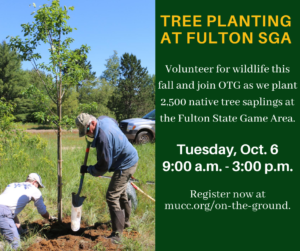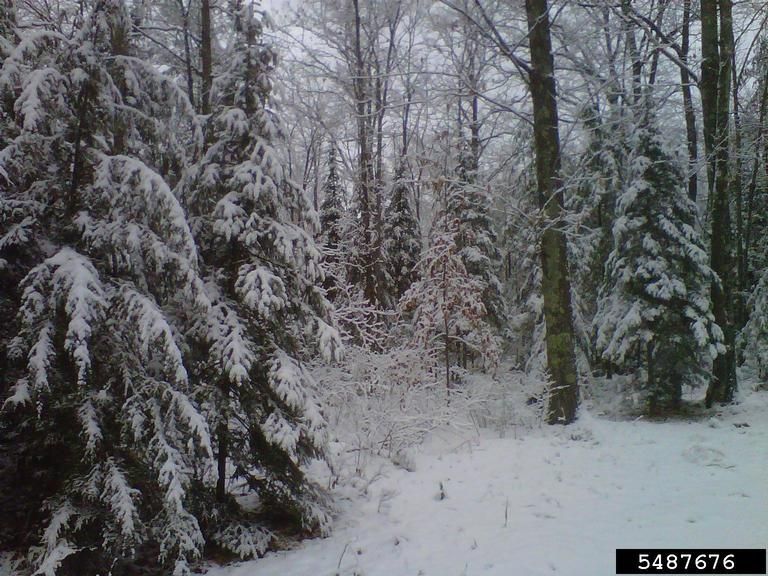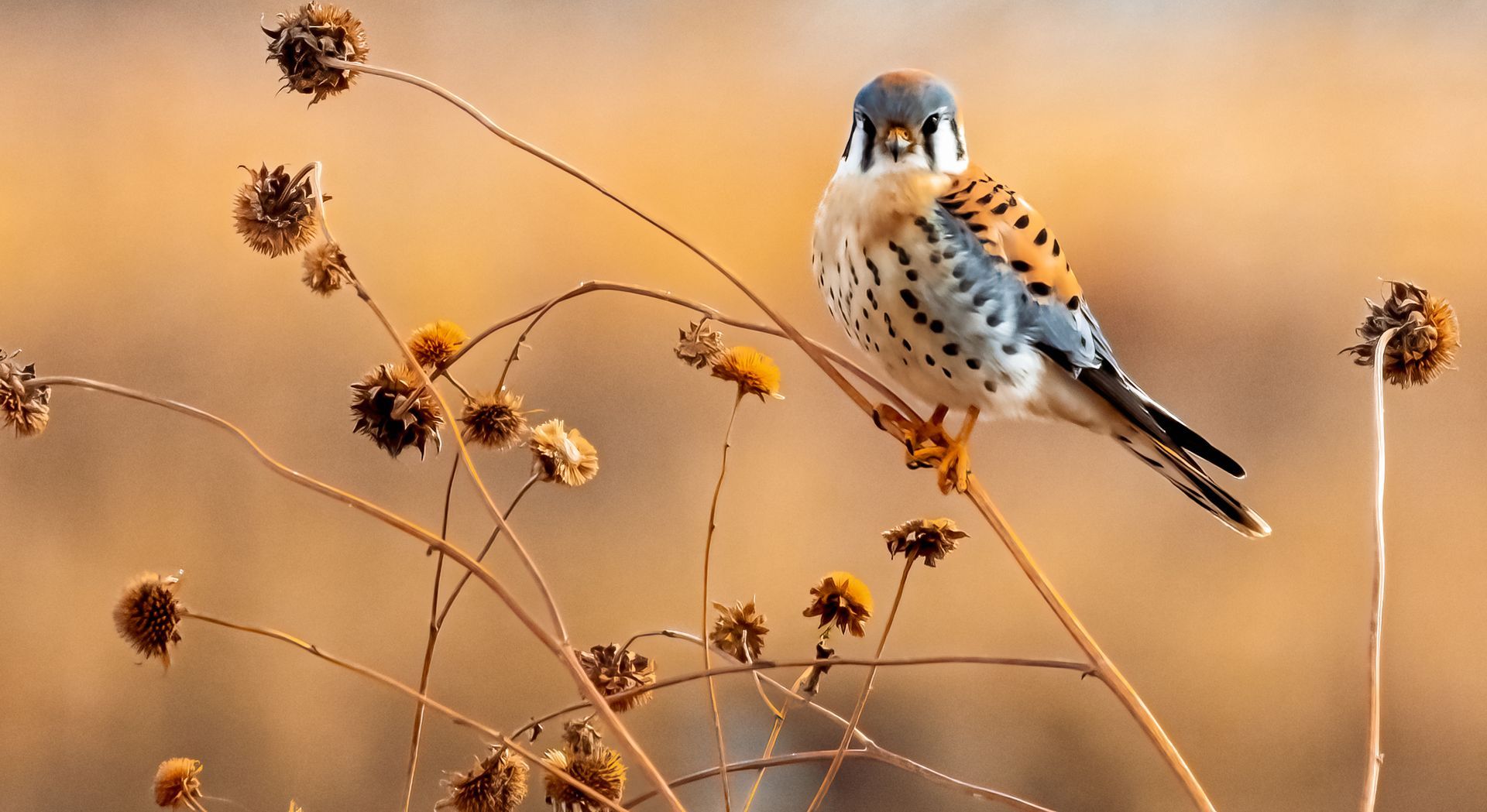Plant Trees with the OTG Program this October
After event postponements and cancellations due to COVID-19 throughout the spring and summer field seasons, the On the Ground (OTG) program is happy to be getting back out into the field to improve wildlife habitat on public land. We have been contacted by diverse conservation groups regarding partnerships to plant trees this fall, and we are doing our best to balance the changing fiscal year with plans for events across the state.
Currently, we are working with conservation partners to host potential tree planting events near Marquette in the Upper Peninsula and at the Petersburg State Game Area in the southeastern Lower Peninsula. Should they be held, each of these events would take place in late September or early October.
 One event that is confirmed and scheduled is a tree planting event at the Fulton State Game Area on Tuesday, October 6, 2020 from 9 a.m. to 3 p.m. Originally intended to be a volunteer day on Earth Day this past April, the event date was moved due to COVID-19 public health concerns and limitations.
One event that is confirmed and scheduled is a tree planting event at the Fulton State Game Area on Tuesday, October 6, 2020 from 9 a.m. to 3 p.m. Originally intended to be a volunteer day on Earth Day this past April, the event date was moved due to COVID-19 public health concerns and limitations.
Funded by a grant from Consumers Energy, 2,500 native conifer and mast-producing seedlings will be planted in openings within the Fulton State Game Area in the city of Fulton, Michigan. While conifers can provide nesting sites, predator protection, food and thermal cover for many birds and small game species, mast-producing trees provide supplemental food and cover that enhance the local ecosystem and encourage biodiversity. If you are interested in attending this event, you can register HERE .
The OTG program is a great way to get outdoors and volunteer for wildlife this fall! Our events are family-friendly, and free lunch and t-shirts are provided to all attendees. Please visit mucc.org/on-the-ground or facebook.com/muccotg for updates about projects and the OTG program.
The post Plant Trees with the OTG Program this October appeared first on Michigan United Conservation Clubs.



